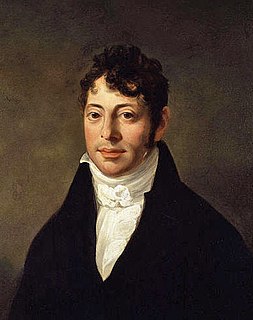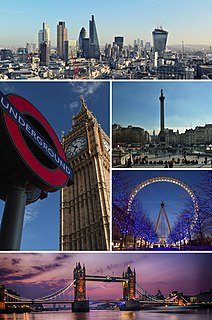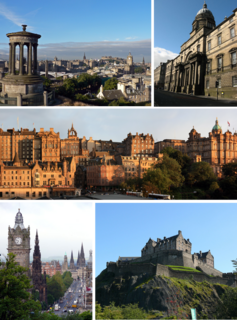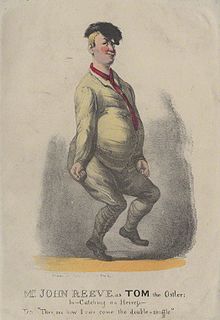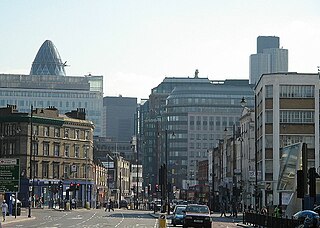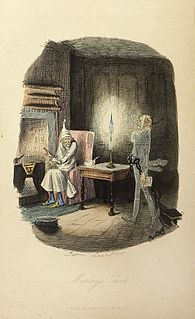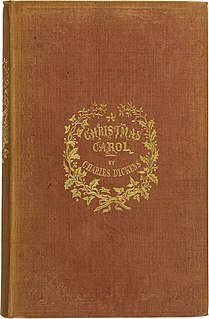
A clown is a comic performer who employs slapstick or similar types of physical comedy, often in a mime style.

Harlequin is the best-known of the zanni or comic servant characters from the Italian Commedia dell'arte. The role is traditionally believed to have been introduced by Zan Ganassa in the late 16th century, was definitively popularized by the Italian actor Tristano Martinelli in Paris in 1584–1585, and became a stock character after Martinelli's death in 1630.

Harlequinade is a British comic theatrical genre, defined by the Oxford English Dictionary as "that part of a pantomime in which the harlequin and clown play the principal parts". It developed in England between the 17th and mid-19th centuries. It was originally a slapstick adaptation or variant of the Commedia dell'arte, which originated in Italy and reached its apogee there in the 16th and 17th centuries. The story of the Harlequinade revolves around a comic incident in the lives of its five main characters: Harlequin, who loves Columbine; Columbine's greedy and foolish father Pantaloon, who tries to separate the lovers in league with the mischievous Clown; and the servant, Pierrot, usually involving chaotic chase scenes with a bumbling policeman.

The Royal Opera House (ROH) is an opera house and major performing arts venue in Covent Garden, central London. The large building is often referred to as simply "Covent Garden", after a previous use of the site of the opera house's original construction in 1732. It is the home of The Royal Opera, The Royal Ballet, and the Orchestra of the Royal Opera House. Originally called the Theatre Royal, it served primarily as a playhouse for the first hundred years of its history. In 1734, the first ballet was presented. A year later, Handel's first season of operas began. Many of his operas and oratorios were specifically written for Covent Garden and had their premieres there.

Douglas William Jerrold was an English dramatist and writer.

Sadler's Wells Theatre is a performing arts venue in Clerkenwell, London, England located on Rosebery Avenue. The present-day theatre is the sixth on the site since 1683. It consists of two performance spaces: a 1,500 seat main auditorium and the Lilian Baylis Studio, with extensive rehearsal rooms and technical facilities also housed within the site. Sadler's Wells is renowned as one of the world's leading dance venues. As well as a stage for visiting companies, the theatre is also a producing house, with a number of associated artists and companies that produce original works for the theatre. Sadler's Wells is also responsible for the management of the Peacock Theatre in the West End, during times not used by the London School of Economics.

The Theatre Royal, Drury Lane, commonly known as Drury Lane, is a West End theatre and Grade I listed building in Covent Garden, London, England. The building faces Catherine Street and backs onto Drury Lane. The building is the most recent in a line of four theatres which were built at the same location, the earliest of which dated back to 1663, making it the oldest theatre site in London still in use. According to the author Peter Thomson, for its first two centuries, Drury Lane could "reasonably have claimed to be London's leading theatre". For most of that time, it was one of a handful of patent theatres, granted monopoly rights to the production of "legitimate" drama in London.

Pantomime is a type of musical comedy stage production designed for family entertainment. It was developed in England and is performed throughout the United Kingdom, Ireland and in other English-speaking countries, especially during the Christmas and New Year season. Modern pantomime includes songs, gags, slapstick comedy and dancing. It employs gender-crossing actors and combines topical humour with a story more or less based on a well-known fairy tale, fable or folk tale. It is a participatory form of theatre, in which the audience is expected to sing along with certain parts of the music and shout out phrases to the performers.

Frances "Fanny" Elizabeth Fitzwilliam was a British actor.
Maria Honner (1812–1870), was an Irish actress.
William Reeve was an English theatre composer and organist.
Francis Huntley (1787?-1831) was an English actor.

Joseph Samuel William Grimaldi, better known as J. S. Grimaldi or JS Grimaldi, was an English stage actor, comedian and dancer, who frequently played the role of Clown in the harlequinades that accompanied nineteenth-century pantomimes. He was the son of Joseph Grimaldi, who popularised the role of Clown in the early 1800s.
John Peter Bologna (1775 –1846), known as Jack Bologna on stage, was an Italian actor and dancer, who spent much time in England popularising the role of Harlequin in Georgian pantomimes and harlequinades in the early part of the 1800s at the Sadler's Wells and Covent Garden Theatres.

Charles Isaac Mungo Dibdin, or Charles Pitt or Charles Dibdin the younger, as he was professionally known, was an English dramatist, composer, writer and theatre proprietor. He was perhaps best known for his proprietorship of the Sadler's Wells Theatre and for the pantomimes and satirical farces that he wrote, and which were staged at many theatres across London. He employed Joseph Grimaldi at Sadler's Wells where Grimaldi appeared in many of his most successful pantomimes. He was the son of Charles Dibdin, brother of Thomas John Dibdin and godson of David Garrick.

William Henry Schofield Payne was an actor and pantomimist who created much of the stage business connected with the character Harlequin. He was the father of the Victorian era pantomime clowns the Payne Brothers.

